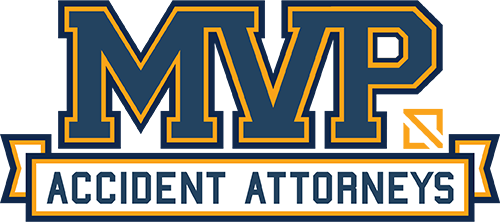
California motorcycle laws: lane splitting, licensing & insurance
Motorcyclists in California must follow the same laws as other motorists—but there are a few additional rules you need to know too.
California’s serene and scenic landscapes have long been popular with motorcyclists. In fact, according to the California Department of Motor Vehicles, more than 875,000 motorcycles are registered in California, making it the leading state for motorized 2-wheeled fun.
While the state is a paradise for many motorcycle enthusiasts, it can also be hazardous due to the high prevalence of motorcycle accidents. Because of this, California has specific laws that apply exclusively to motorcycle riders. As a responsible motorcyclist, you must understand California motorcycle laws and how they can affect your safety, liability and ability to recover compensation if you’re in an accident.
California motorcycle licensing requirements
All motorcyclists must obtain a learner's permit before applying for a California motorcycle license. To get the permit, you must be at least 16 years old, complete a motorcycle knowledge exam, submit an application and pay a fee. Additionally, you have to pass a state-approved motorcycle safety training course.
Riders must hold their permit for at least 6 months to apply for a license. Permits are valid for 1 year after issuance, and they prohibit drivers from:
-
- Driving on the freeway
-
- Carrying another passenger
- Driving during the night
Riders aged 21 and above can bypass training if they pass a skills test at the DMV. The skills test includes:
-
- Pre-trip inspection
-
- Slow riding
-
- Gear shifting
- Riding different track paths
California motorcycle insurance requirements
Riders must register all motorcycles in California with the Department of Motor Vehicles (DMV). To register, you need to provide the vehicle's title and registration, proof of insurance and out-of-state title and registration (if applicable). You’ll also need to pay for any related expenses. Otherwise, it’s illegal to drive an unregistered motorcycle.
If you get into an accident, you need to have insurance to cover the cost of damages and injuries that result. In California, you’re required by law to have liability insurance. The minimum coverage requirements for motorcycle insurance are:
-
- $5,000 in property damage liability
-
- $15,000 for individual bodily injury
- $30,000 for bodily injuries to multiple people
Uninsured drivers could face fines between $100 to $200 for a 1st offense and $200 to $500 for each subsequent offense within 3 years of a previous conviction.
Street-legal motorcycle requirements
To legally ride in California, a motorcycle must meet the following safety requirements:
-
- All lights must be in working condition.
-
- The registration and insurance must be up-to-date.
-
- The motorcycle cannot be equipped with an exhaust system that produces excessive noise.
-
- The motorcycle must have at least 1 mirror that provides a minimum view of 200 feet to the rear of the vehicle.
-
- The motorcycle must have front and rear turn signals.
- The motorcycle must be equipped with a horn that everyone can hear.
California lane splitting law
Lane splitting allows motorcycle riders to maneuver between 2 lanes of traffic to bypass other vehicles. California legalized lane splitting on state roadways in 2016.
According to the basic guidelines for lane splitting, riders should:
-
- Only lane split when traffic is less than 20 mph, and NEVER lane split at more than 30 mph.
-
- Always be mindful of the other road users around.
-
- Leave at least 3 feet of space on both sides to avoid collisions with cars and other motorcyclists.
-
- Never drive more than 10 mph faster than other vehicles when lane splitting.
- Avoid driving at a speed that blocks traffic movement.
Motorcycle helmet laws
According to California Vehicle Code (CVC) 27803, motorcycle drivers must wear a helmet when operating a motorcycle at all times. Motorcyclists without helmets are much more likely to sustain a serious head injury during an accident.
The safety helmet must be authenticated by its manufacturer to comply with U.S. DOT regulations, including a visible DOT sticker.
The law also mandates that a helmet should be fastened with straps and fit securely to a rider's head without excessive lateral or vertical movement. Motorists can wear an earplug in only 1 ear underneath the helmet so that they can hear the sounds of oncoming traffic.
If you’re pulled over for not wearing a helmet, you can be fined up to $250, and in some extreme cases, your motorcycle can be confiscated.
Motorcycle passenger laws
All passengers riding on a motorcycle must wear a helmet specifically designed for motorcycle riding. No age restrictions are observed regarding motorcycle passengers in California, meaning people of all ages can ride as passengers.
The passenger seat and footholds should be firmly secured, and passengers must stay seated while the motorcycle is in motion. If a passenger refuses to obey any of these laws, you could be held accountable.
When to contact a California motorcycle accident attorney
California motorcycle laws are there to protect you and other drivers on the road. Combining these laws with common-sense precautions will increase your chance of returning home safely after every ride.
Unfortunately, even when regulations and safety precautions are followed, accidents can happen, and insurance companies are often biased and quick to try to shift the blame and avoid compensating an injured rider. A skilled personal injury lawyer can provide legal services that protect your rights after a motorcycle injury so you can get maximum compensation.
If you’ve been injured in a motorcycle accident, the experienced motorcycle accident lawyers at MVP Accident Attorneys are here to help. Our firm has recovered millions of dollars for our clients across California and Texas, and we'd love to devise an individualized plan for your case too.
Contact us today for your free, no-obligation consultation. There’s never a fee unless we win your case.
Author

Brett Sachs
Brett S. Sachs graduated from Michigan State University College of Law with Cum Laude Honors. While attending Michigan State, Brett was awarded for his service in the Michigan State University College of Law Civil Rights Clinic, where he represented prisoners of the Michigan Department of Corrections from injustices brought upon them. Learn more.
Top-Rated Lawyers

Lizbhett Rodriguez
Jason Acosta

When You’ve Been Injured
Personal Injury Law

